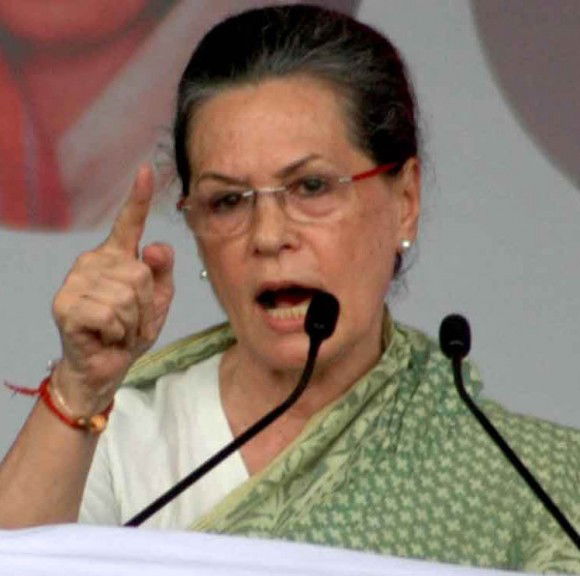Headlines
Sonia seeks passage of women's reservation bill

New Delhi, March 8 Congress President Sonia Gandhi on Tuesday sought early passage of a bill that seeks to reserve one third of legislative seats in India for women.
"The long-awaited Women's Reservation Bill requires the government's attention," Sonia said while speaking in the Lok Sabha as the world celebrated the International Women's Day on Tuesday.
Sonia Gandhi said the concept of 'maximum governance' - Prime Minister Narendra Modi's catchphrase - would mean giving "women their rights".
Therefore, she said, parliament should pass the bill at the earliest.
"The maximum governance does not mean only accelerating the economic growth but it also involves debates and discussion without any retaliation. Despite their remarkable performance in different fields, women continue to be victims of oppression and discrimination," she said.
The Congress president said women account for around 40 percent of the elected representatives in panchayats and other local bodies after a law was enacted that provided for 33 percent reservation to them.
She expressed concern over laying down of eligibility criteria vis-a-vis education by some states for fighting local bodies' polls.
"Such things results in denying rights to women belonging to the scheduled castes and tribes. The matter needs urgent attention," she said.
Sonia Gandhi said the Congress was proud of giving the country its first woman prime minister in Indira Gandhi, first woman president in Pratibha Devisingh Patil and the first woman Lok Sabha speaker in Meira Kumar.
She advocated equal rights to women, saying the country must have the courage to deal with social evils that women were facing.
The government has pledged to celebrate the day by letting only women parliamentarians speak in parliament.
The controversial Women's Reservation Bill was first introduced by the Deve Gowda government on September 12, 1996. However, since then, its journey has been blocked in parliament even as the historic piece of legislation cleared the first hurdle in 2010 when it was approved by the Rajya Sabha during the Congress-led government's rule.
However, the bill never made it to the Lok Sabha and therefore the law could not be passed.

1 hour ago
New Photo Policy Helps Prevent Immigration Fraud Through Enhanced Identity Verification

1 hour ago
ZEE5 to Stream Kesariya@100, a Docuseries capturing the RSS’ Century-Long Journey

1 hour ago
MoS Pankaj Chaudhary files nomination for Uttar Pradesh BJP chief post

1 hour ago
From Red corridors to rehabilitation: Bastar’s mass surrenders signal fading grip of Naxalism

1 hour ago
Instead of gun in hand, I have hockey stick: Ex-Maoists embrace new beginnings at Bastar Olympics

1 hour ago
Increased FDI limit in insurance to boost innovation, insurance penetration: Industry

1 hour ago
Our shipyards powering PM Modi's vision to make India a top shipbuilder: Minister

1 hour ago
India has potential to become global leader in AI-supported stroke management: Experts

1 hour ago
Future looks bright for ‘very, very talented’ India U19 men’s ahead of next year’s World Cup

1 hour ago
Mandhana congratulates Harmanpreet after PCA unveil stand in her honour

1 hour ago
Mamata Banerjee announces judicial committee to probe chaos at Salt Lake Stadium over Lionel Messi’s visit

1 hour ago
Jackie Shroff honours Smita Patil’s legacy on her 39th death anniversary

1 hour ago
Aditya Dhar says ‘Dhurandhar’ ‘Part 2 is coming’ on Hrithik Roshan's second review






















